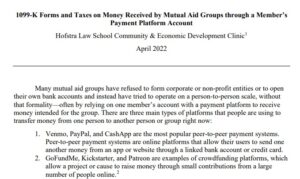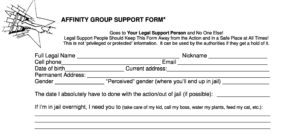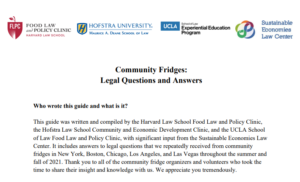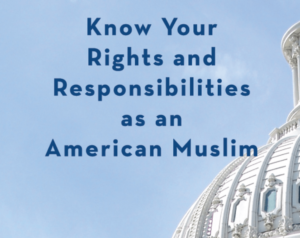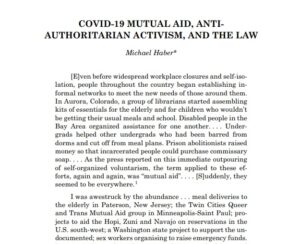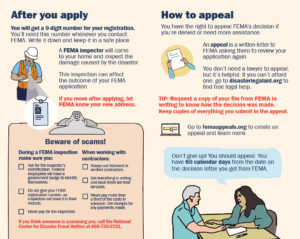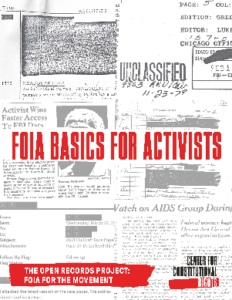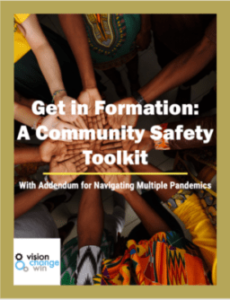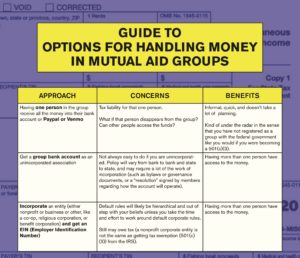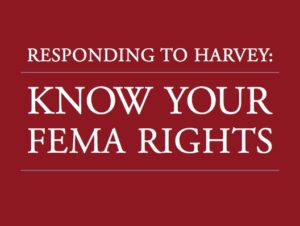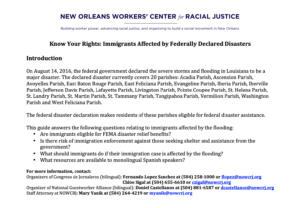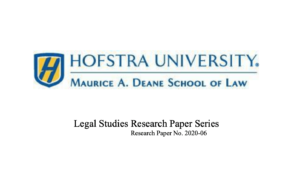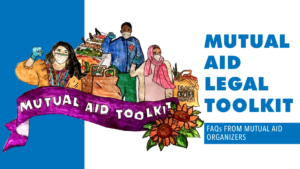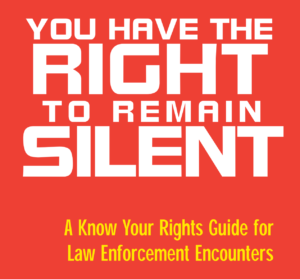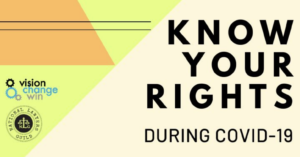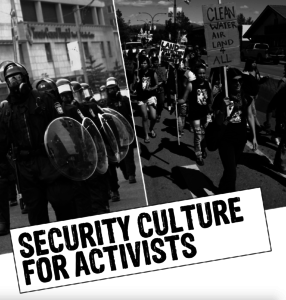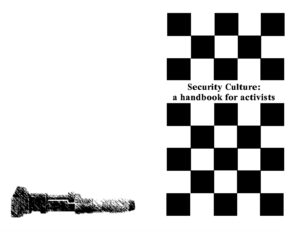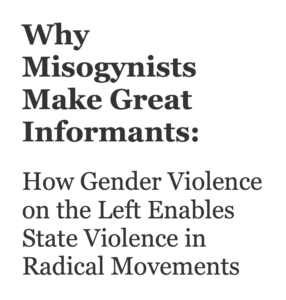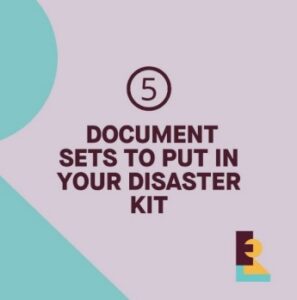-
Hofstra Law School Community & Economic Development Clinic
Many mutual aid groups have refused to form corporate or non-profit entities or to open their own bank accounts and instead have tried to operate on a person-to-person scale, without that formality—often by relying on one member’s account with a payment platform to receive money intended for the group.
-
Loyola Law Review
This Article takes the form of a letter from Gulf Coast Katrina social justice advocates. Specifically, the Letter is addressed to those who work for social justice after a disaster strikes. This is our attempt to tell you some of our stories and some of the lessons we learned from our experiences with Hurricanes Katrina and Rita in the summer of 2005.
-
Affinity group support form
-
Harvard Law School Food Law and Policy Clinic
We intend for this document to be a living document that community fridge and mutual aid organizers can consult, and we will continue to add questions and answers as we receive them. We look forward to hearing from you and hope to be able to provide legal support to your critical work.
-
CAIR
The Council on American-Islamic Relations (CAIR) is a nonprofit, grassroots civil rights advocacy organization.
-
Loyola Law Review
As the COVID-19 pandemic spread across the globe in the spring of 2020, thousands of grassroots, participatory, and often social movement-connected community efforts to help feed, shelter, and care for one another through the crisis were launched, many of which identified their projects as “mutual aid.” This article presents an overview of mutual aid and gives an introduction to the legal issues being confronted by mutual aid groups.
-
Center for Urban Pedagogy
Recovering from a natural disaster can be difficult for you and your family. When the president declares a natural disaster and approves Individual Assistance, the Federal Emergency Management Agency (FEMA) can provide support to homeowners and renters who need help to recover. This guide can help you understand how to apply to FEMA.
-
Center for Constitutional Rights
FOIA Basics for Activists is designed to support activists, organizers and social movements in filing FOIA requests to aid their ongoing campaigns and work.
-
Vision Change Win
Welcome to Get in Formation, the Vision Change Win Community Safety Toolkit. This toolkit is a collection of security and safety practices we have been building and learning for years from Black, Indigenous, and People of Color movements within the U.S.
-
Mike Haber and Dean Spade
Pros and cons of different options to approach handling money in mutual aid groups.
-
Keeping Each Other Safe When Virtually Organizing Mutual AidCommunities across the country are stepping up to self-organize mutual aid groups, uniting virtually to offer and coordinate support to those who are in need. In solidarity with the need for physical ...
-
Texas Young Lawyer's Association
The Federal Emergency Management Agency (“FEMA”) coordinates the federal government’s role in preparing for, preventing, reducing the effects of, responding to, and recovering from all domestic disasters, whether natural or man-made, including acts of terror.
-
This guide answers several questions relating to immigrants affected by the flooding in New Orleans.
-
In an upside-down world where the prevailing view is that exploitation, hierarchy, and domination are natural and just, simple acts of sharing what we have with our neighbors and communities out of a sense of solidarity can become transgressive political acts.
-
Barnard Center for Research on Women
This online teach-in is for mutual aid groups facing nuts and bolts issues that come with the work we’ve all been doing. How has your group been funneling money to people in need, and what are the tax consequences? How should we store money we raise? Do we need to consider incorporating, having a fiscal sponsor, or becoming a non-profit?
-
Mutual Aid Legal Cafe Teach-InPRESENTERS: Tia Katrina Taruc-Myers (Law Center) Charlotte Tsui (Law Center) Sarah Kaplan (Cutting Edge Counsel) AGENDA: 1. Intro to mutual aid - Examples of...
-
Mutual Aid and the LawThis is a workshop on some of the most common legal questions we've heard coming up for mutual aid groups that have formed in response to the pandemic. It's ...
-
SELC
Sustainable Economies Law Center created this legal resource guide with grassroots mutual aid networks in mind. At the beginning of the pandemic, we started to receive questions from community organizers from across the country. As these operations grew in number and complexity, we noticed a pattern in the types of questions being asked.
-
National Lawyers Guild
Whether or not you’re a citizen, you have rights under the United States Constitution. The Fifth Amendment gives every person the right to remain silent: not to answer questions asked by a police officer or government agent.
-
National Lawyers Guild
While the COVID-19 pandemic necessitates public health measures to reduce the impact of the virus on our communities and health care systems, we must be vigilant and resist authoritarian and violent tendencies.
-
The Ruckus Society
A security culture is a set of customs and measures shared by a community whose members may engage in sensitive or illegal activities. Security culture practices minimize the risks of members getting arrested or their actions being foiled.
-
Resistance has been on the rise for the past few years, with activists adopting more and more affective tactics for fighting back.
-
Feminist Anarchist Border Opposition
In January 2009, activists in Austin, Texas, learned that one of their own, a white activist named Brandon Darby, had infiltrated groups protesting the Republican National Convention (RNC) as an FBI informant.
-
Emergency Legal Responders
Document sets to include in your disaster kit: identification, housing, financial, medical, and personal to mitigate risks and make applying for aid easier.
Legal and Security2022-08-29T13:54:33-04:00
